Berklee Faculty Pioneers
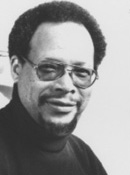
Alan Dawson (1929-1996) was both a distinguished performer and drum instructor. During his 18 years at Berklee his students included Terri Lyne Carrington, Steve Smith, Kenwood Dennard, Vinnie Colaiuta, Harvey Mason, Joe LaBarbera, John Robinson and more. Dawson worked with Lionel Hampton, Quincy Jones, Rahsaan Roland Kirk, Bill Evans, Sonny Rollins, Dave Brubeck, and others.

Joe Viola (1920-2001) was the founding chair of the Woodwind Department at Berklee and taught at the college for five decades. Among his early students were Herb Pomeroy, Ray Santisi, Charlie Mariano, and Quincy Jones. He later mentored Joe Lovano, Jerry Bergonzi, Bill Pierce, Donald Harrison, Antonio Hart, and others. Viola’s three-volume method, The Technique of the Saxophone, remains part of Berklee’s curriculum.
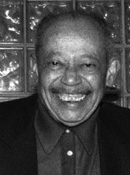
Everett "Dean" Earl (1910-2002) made a name for himself in the Boston area, first as a performer and, later, as a Berklee faculty member. He befriended Count Basie and backed such artists as Charlie Parker, Billie Holiday, Sonny Stitt, and Ben Webster, to name a few. Among the hundreds of students he taught at Berklee during his 41-year tenure were Bruce Hornsby and Cyrus Chestnut, as well as many future Berklee faculty members. He taught until shortly before his passing in 2002.
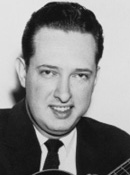
Bill Leavitt (1926-1990) replaced Jack Petersen as the chair of the Guitar Department in 1965, and penned the three-volume A Modern Method for Guitar, which is still used today. During his 24 years at Berklee, he taught countless students, including John Abercrombie, Bill Frisell, John Scofield, Mike Stern, and Steve Vai. Leavitt wrote arrangements for top singers including Ella Fitzgerald, Patti Page, and Andy Williams. He also cowrote the song, "My Baby's Comin' Home," which became a hit in 1953 for Les Paul and Mary Ford.
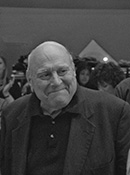
John Bavicchi (1922-2012) joined the Berklee faculty in 1964 and assisted founding Composition Department chair William Maloof in developing the curriculum for Berklee's traditional classical music courses in composition, music theory, conducting, and more. A prolific and accomplished composer in his own right, Bavicchi wrote hundreds of works for orchestra, concert band, chamber ensembles, chorus, and solo instruments. Bavicchi continued teaching directed-study students at his home until shortly before his passing in December 2012 at the age of 90.
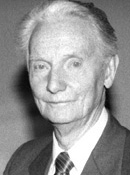
It was John Bavicchi who recommended that Berklee founder Lawrence Berk hire Lithuania-born composer and conductor Jeronimas Kacinskas. An esteemed musician in his home country, Kacinskas had conducted more then 1,000 orchestral performances, opera concerts, and radio broadcasts in his homeland before he and his wife fled Lithania's Soviet invaders during World War II. During the course of his 19 years at Berklee, Kacinskas made a deep impression on the countless students he taught.
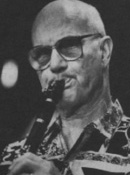
Philadelphia-born John LaPorta (1920-2004) performed and recorded with a range of jazz musicians, including Charlie Parker, Lester Young, Dizzy Gillespie, Charles Mingus, and Miles Davis, and with classical musicians Leonard Bernstein, Igor Stravinsky, and Leopold Stokowski. He was also a founding member of the National Assocation of Jazz Educators. LaPorta was the founding chair of Berklee's Instrumental Performance Department and taught at the college for 37 years.
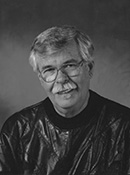
Jazz composer, bandleader, and trumpeter Herb Pomeroy (1930-2007) became a Berklee faculty member in 1956, where he developed his renowned Line Writing courses, a method for composing and arranging for big band that became one of the hallmarks of his 111 semesters as a Berklee educator. Pomeroy worked with many of Berklee's most advanced students, including Arif Mardin, Alan Silvestri, Rob Mounsey, Alf Clausen, and Hal Crook, to name a few.
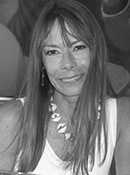
Terry Becker Boyle (1950-2005) helped break new ground for female engineers in a then male-dominated recording studio world. She quickly distinguished herself working with top artists such as Bonnie Raitt, Jackson Browne, Steely Dan, Wayne Shorter, and many more, and won a Grammy Award for her engineering work with Taj Mahal in 2000. Becker Boyle spent the later years of her life at Berklee teaching basic and advanced recording, mixing, remixing, and introduction to surround-sound mixing courses. In 2003, she became the college's director of special programs in Los Angeles.

Like Becker Boyle, Robin Coxe-Yeldham (1952-1999) was a bellwether for women in the music engineering field. In 1982, she began teaching audio engineering courses at Berklee, one year before the Music Production and Engineering Department was established. In 1995, she received a special award from the Audio Engineering Society naming her the "first lady in audio education in America." Coxe-Yeldham engineered several albums for a diverse roster of artists, including jazz bassist Steve Swallow, classical chamber group Trio Sonata, and vocalist Gail Wynters.
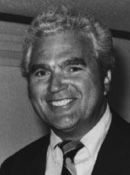
When he was 17, Robert Share (1928-1984) was one of Lawrence Berk's first three students at his 209 Massachusetts Avenue teaching studio. A few years later in 1945, Berk hired Share as a teacher at Schillinger House. He proved to be a gifted educator and taught the Schillinger System of composition as well as music theory, harmony, and scoring. Among Share's students was Gary Burton, who once said, "Bob Share's class organized harmony for me. And I wasn't alone. The people who went on to create [Berklee's] harmony department all learned their harmony from Bob." Share was named Berklee's provost in 1979.
